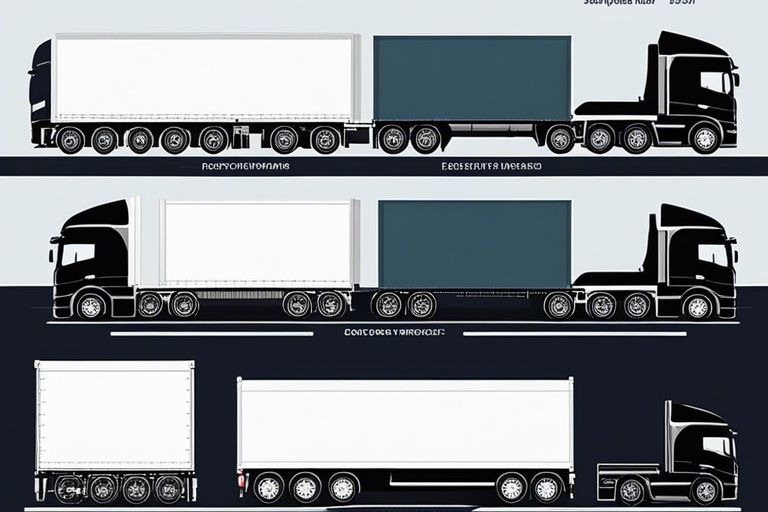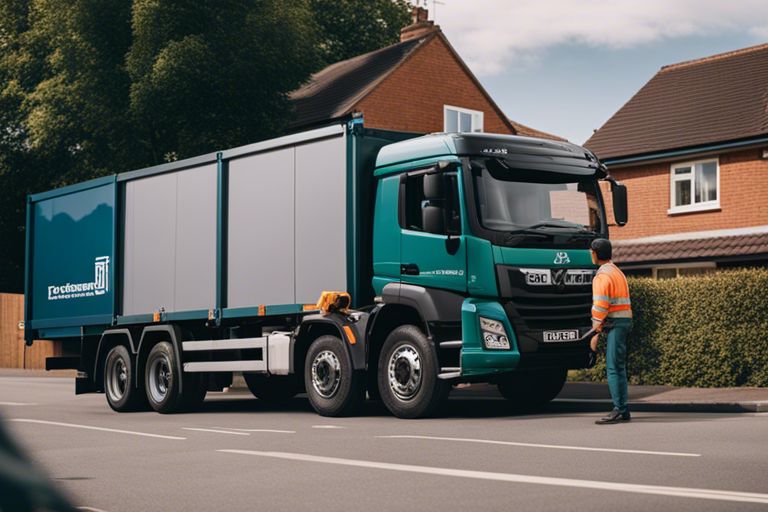Economical waste management is a crucial consideration for businesses across the UK. Devising a cost-effective waste removal strategy can not only reduce expenditure but also contribute positively to the environment and community. In this informative blog post, we will explore various waste removal options suited for UK businesses, including recycling, waste-to-energy solutions, and efficient waste disposal services. For small businesses in the UK, it is important to consider partnering with reputable waste management companies, such as Waste Managed, to ensure compliance with waste regulations and to benefit from tailored waste removal solutions. To learn more about waste management options for small businesses in the UK, visit Waste Management For Small Businesses (UK) 2023.
Key Takeaways:
- Efficient waste management: UK businesses can benefit from implementing cost-effective waste removal options to efficiently manage their waste and reduce disposal costs.
- Environmental sustainability: By choosing sustainable waste removal options, businesses can contribute to reducing their environmental impact and meeting government regulations.
- Financial savings: Implementing cost-effective waste removal options can lead to significant cost savings for UK businesses in the long run, allowing them to allocate resources to other areas of their operations.
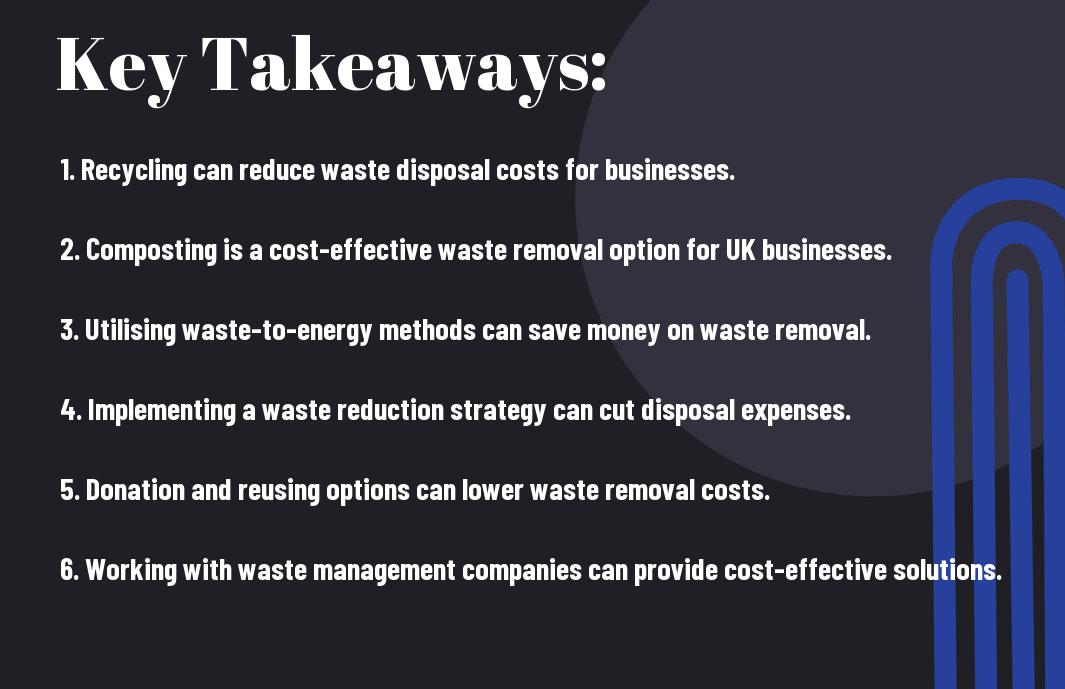
Legal and Environmental Considerations
When it comes to waste removal for UK businesses, there are several legal and environmental considerations to keep in mind. Understanding these factors is crucial to ensure compliance with regulations and to minimise the impact of waste on the environment. To learn more about commercial waste disposal and collection costs, you can visit Commercial Waste Disposal and Collection Costs.
UK Waste Disposal Regulations
In the UK, businesses are required to adhere to strict waste disposal regulations outlined by the Environment Agency. This includes proper categorisation, storage, transportation, and disposal of different types of waste. Failure to comply with these regulations can result in heavy fines and legal consequences.
Impact of Waste on the Environment
The improper handling and disposal of waste can have a significant impact on the environment. From increased carbon emissions to soil and water pollution, the consequences of improper waste management can be severe. It is important for businesses to consider the environmental impact of their waste disposal practices and take steps to mitigate these effects.
Businesses should be aware of the potential for long-term environmental damage caused by irresponsible waste disposal. By implementing sustainable waste management practices and investing in eco-friendly solutions, businesses can not only reduce their environmental impact but also improve their public image and contribute to a healthier planet.
Cost-effective Waste Removal Strategies
When it comes to waste removal, UK businesses are constantly seeking cost-effective solutions that also prioritise sustainability. Implementing efficient waste removal strategies not only benefits the environment but also contributes to significant cost savings for businesses. In this article, we will explore some effective waste removal options for UK businesses that are both cost-effective and environmentally friendly.
Reducing Waste Generation
One of the most effective ways for businesses to manage waste removal costs is by focusing on reducing waste generation. By implementing measures such as reducing packaging, minimising single-use items, and optimising production processes to limit waste, businesses can significantly reduce the volume of waste that needs to be removed.
Additionally, businesses can explore innovative waste reduction techniques such as investing in technology to reuse materials or implementing composting programs to divert organic waste away from traditional disposal methods.
Recycling and Upcycling Initiatives
For businesses looking to enhance their waste removal strategies, adopting recycling and upcycling initiatives is crucial. This involves establishing efficient waste sorting processes within the business premises and collaborating with local recycling facilities to ensure proper disposal of recyclable materials. Furthermore, businesses can explore options for upcycling, which involves repurposing waste materials into new products or materials, thereby reducing the volume of waste that ends up in landfills.
Implementing a comprehensive recycling and upcycling programme not only positively impacts the environment, but it can also aid in reducing waste removal costs by diverting a significant portion of waste away from traditional disposal methods.
Recycling and upcycling initiatives are not only sustainable alternatives to traditional waste removal methods, but they also contribute to a positive brand image for businesses, showcasing their commitment to environmental responsibility to customers and stakeholders.
Contracting Affordable Waste Removal Services
Contracting affordable waste removal services is another option for businesses seeking cost-effective waste management solutions. Businesses can partner with waste removal companies that offer competitive pricing for their services, while also demonstrating commitment to environmental compliance and sustainable waste disposal practices.
Moreover, businesses can explore options for tailored waste removal contracts that align with their specific waste management needs, ensuring that they only pay for the services they require, thus minimising unnecessary expenses associated with waste removal.
Partnering with reputable waste removal services not only ensures cost-effective waste management solutions for businesses, but it also enhances overall operational efficiency by allowing businesses to focus on their core activities while leaving waste management in the hands of experts.
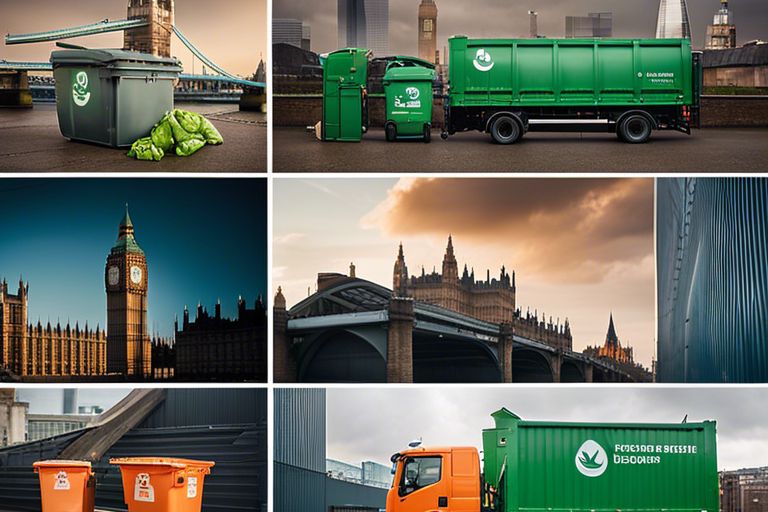
Innovative Waste Management Solutions
As businesses in the UK continue to seek cost-effective waste removal options, innovative waste management solutions have emerged as a viable alternative. These solutions harness advanced technologies and collaborative partnerships to address the growing challenge of waste disposal.
Waste-to-Energy Technologies
Waste-to-energy technologies offer a sustainable approach to waste management by converting non-recyclable waste into energy. This process not only helps in reducing the volume of waste in landfills but also generates electricity, contributing to the renewable energy supply. By adopting these technologies, businesses can not only reduce their environmental impact but also potentially benefit from energy cost savings.
Collaborative Waste Management Programs
Collaborative waste management programs involve partnerships between businesses, waste management companies, and local authorities to streamline waste collection, recycling, and disposal processes. By working together, businesses can access shared resources, such as recycling facilities and transportation, to reduce the overall cost of waste management. Additionally, collaborative programs promote knowledge sharing and best practices, leading to improved waste reduction and recycling rates across industries.
Collaborative waste management programmes also foster a sense of corporate responsibility and environmental stewardship, as businesses join forces to address the challenges of waste management. By actively participating in collaborative programs, businesses can demonstrate their commitment to sustainability and contribute towards a cleaner, greener future for the UK.
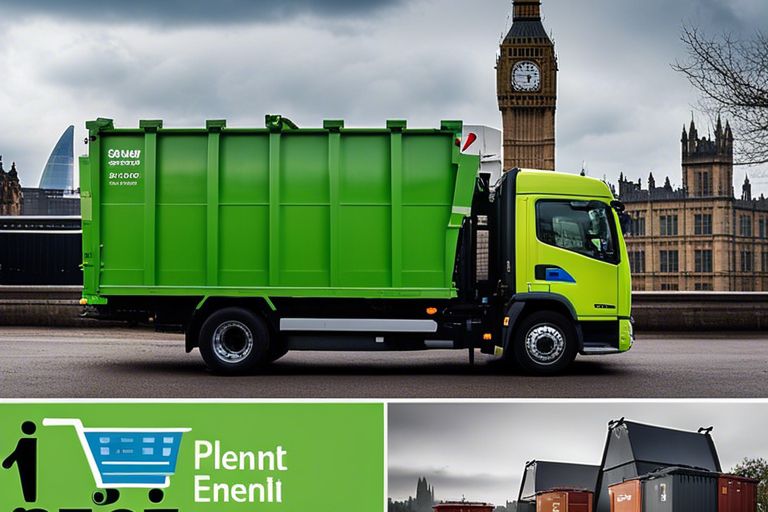
Case Studies and Success Stories
Here are some case studies and success stories of businesses in the UK that have effectively managed their waste removal, reducing costs and environmental impact.
- Case Study 1: XYZ Small Business reduced their annual waste disposal costs by 40% through implementing a comprehensive recycling programme.
- Case Study 2: ABC Corporation diverted 90% of their waste from landfill by investing in advanced waste separation technology.
- Case Study 3: DEF Enterprises saved £50,000 per year by adopting a zero-waste policy and implementing efficient waste management practices.
Small Business Waste Reduction Achievements
Small businesses across the UK have shown remarkable progress in waste reduction efforts. By implementing simple yet effective waste management strategies, they have not only significantly reduced their environmental impact but also achieved substantial cost savings. From implementing recycling programmes to reusing materials, these businesses have set an example for others to follow.
Large Corporations’ Sustainable Waste Management
Large corporations in the UK have made sustainable waste management a priority. By investing in advanced technologies, establishing partnerships with waste management companies, and setting ambitious waste reduction targets, these corporations have successfully reduced their environmental footprint while improving their bottom line. Their commitment to sustainability has not only benefitted the environment but has also enhanced their reputation as responsible corporate citizens.
Large corporations play a crucial role in leading the way towards achieving a circular economy and reducing the environmental impact of business operations. By adopting sustainable waste management practices, these corporations are setting a positive example for others to follow.
Cost-effective Waste Removal Options for UK Businesses
In conclusion, it is vital for UK businesses to carefully consider their waste removal options in order to maintain cost-effectiveness and environmental responsibility. By exploring methods such as waste minimization, recycling, and outsourcing waste management, businesses can reduce their overall waste management expenses while also contributing to sustainable, eco-friendly practices. It is crucial for businesses to conduct thorough research and assess their waste generation in order to determine the most suitable option for their specific needs and budget. Investing in cost-effective waste removal options not only benefits the bottom line of businesses, but also helps to reduce the overall environmental impact of waste generation. By making conscious decisions and implementing efficient waste removal strategies, UK businesses can play a significant role in promoting a greener and more sustainable future for their communities and the planet as a whole.
FAQ
Q: What are the cost-effective waste removal options for UK businesses?
A: There are several cost-effective waste removal options for UK businesses, including recycling, waste-to-energy conversion, and hiring reliable waste management companies.
Q: How can recycling help UK businesses save money on waste removal?
A: Recycling can help UK businesses save money on waste removal by reducing the amount of waste sent to landfills, which can result in lower landfill disposal fees and potential revenue from selling recyclable materials.
Q: What is waste-to-energy conversion and how can it benefit UK businesses?
A: Waste-to-energy conversion involves converting waste materials into energy. This can benefit UK businesses by reducing the volume of waste sent to landfills and creating a renewable energy source that can potentially lower energy costs.
Q: Why should UK businesses consider hiring waste management companies for waste removal?
A: Hiring waste management companies can provide UK businesses with professional expertise in waste handling and disposal, as well as cost-effective solutions for waste removal tailored to their specific needs.
Q: What are some important factors for UK businesses to consider when choosing cost-effective waste removal options?
A: When choosing cost-effective waste removal options, UK businesses should consider the potential for cost savings, environmental impact, regulatory compliance, and the long-term sustainability of the chosen waste management solution.



